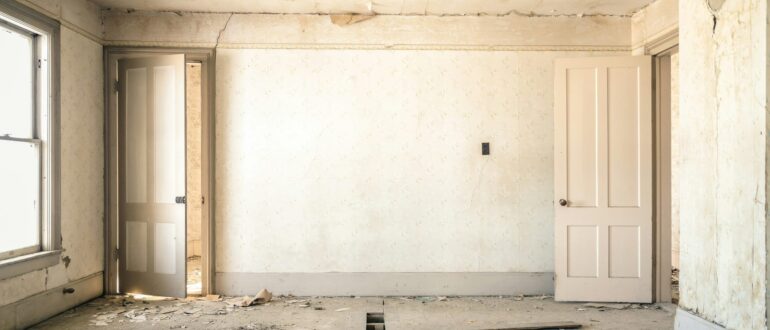Understanding the Local Regulations and Permits
In Dubai, the process of house renovation is not just a matter of design and construction; it involves navigating a complex web of local regulations and building codes. Homeowners must be acutely aware of the legal requirements associated with their renovation projects. This includes understanding which permits and approvals are necessary prior to commencing any work. Failing to comply with these regulations can lead to project delays, fines, or even penalties that may significantly impact the renovation timeline and budget.
The first step in ensuring compliance is conducting thorough research into the specific regulations governing renovations in Dubai. Each emirate may have its own set of laws dictated by the local municipality, and the rules can vary based on the type of renovation being performed, whether it is structural work, electrical upgrades, or plumbing changes. Homeowners should consult the Dubai Municipality’s guidelines or their respective governing authority to gather information on the requisite permits.
Another common oversight among homeowners is neglecting to apply for the mandatory permits. This oversight can have severe repercussions, including the possibility of halting the project entirely until the correct documentation is acquired. To mitigate this risk, it is advisable to hire a professional who specializes in local building codes and regulations. These professionals can assist in gathering the necessary documentation and ensuring all legal requirements are met, thus streamlining the renovation process.
In conclusion, understanding and adhering to local regulations and permits is a critical aspect of any house renovation in Dubai. Homeowners should prioritize research and consider professional assistance to ensure regulatory compliance, ultimately paving the way for a smoother renovation experience.
Budgeting and Financial Management
Budgeting is an essential aspect of any successful house renovation in Dubai. Homeowners often encounter critical mistakes that arise from insufficient financial planning. A common error is underestimating total costs, which can lead to financial strain and potential project delays. It is crucial to prepare an accurate and detailed budget that reflects actual expenses rather than vague estimates. This includes not only the costs of materials and labor but also additional expenses that may not be immediately apparent.
Another significant oversight is neglecting to account for unforeseen expenses. Renovation projects are inherently unpredictable; thus, it is wise to allocate a contingency fund typically ranging from 10% to 20% of the overall budget. This reserve can cover unexpected issues such as structural problems, code compliance costs, or sudden increases in material prices. Failing to have this financial buffer can jeopardize the entire renovation venture.
Additionally, securing adequate funding is vital. Homeowners should explore various financing options available, including personal loans, home equity lines of credit, or even government grants for sustainable renovations. Each financing method comes with its advantages and limitations, making it essential to evaluate them carefully based on one’s financial situation.
To facilitate effective budgeting, obtaining reliable quotes from contractors is crucial. It is advisable to request multiple estimates to compare pricing and services. This practice not only helps in identifying the best contractor but also in avoiding unexpectedly high charges. Moreover, clear communication about the project scope and expectations can lead to more accurate quotes. Proper budgeting and financial management can transform a house renovation in Dubai from a daunting task into a rewarding investment that enhances both property value and personal satisfaction.
Choosing the Right Contractors and Materials
One of the most critical factors in any renovation project is selecting the appropriate contractors and materials. This decision can significantly influence the project’s outcome, particularly in a place like Dubai, where the climate can be harsh and unforgiving.
One common mistake homeowners make is choosing contractors based solely on price. While budget considerations are essential, opting for the lowest bid can lead to significant issues down the line. It is advisable to evaluate contractors based on their experience, reputation, and reviews from previous clients. A contractor’s portfolio can provide insights into their work quality and adherence to timelines. Additionally, conducting thorough interviews will allow homeowners to gauge the contractor’s communication style and understanding of the project requirements, which is crucial for a successful renovation.
Moreover, homeowners should not overlook the importance of vetting references. A reputable contractor should be willing to provide contact information for past clients, allowing potential customers to inquire about their experiences. This step can reveal important information about the contractor’s reliability, workmanship, and service quality.
Similarly, very careful attention should be paid to the selection of materials. A common pitfall is prioritizing cost over quality when choosing materials. While it may be tempting to go for cheaper options, this could lead to increased maintenance expenses and dissatisfaction in the long run. It is essential to select durable materials that can withstand the unique environmental conditions in Dubai, such as high temperatures and humidity. Additionally, assessing the compatibility of materials with the project’s design and structural requirements is vital.
In conclusion, careful selection of contractors and materials is paramount for a successful renovation project in Dubai. By avoiding these common pitfalls and taking the time to conduct research, homeowners can ensure the longevity and durability of their renovations.




Comments 0